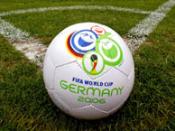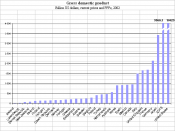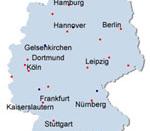World Cup 2006 in Germany
ECONOMIC IMPACT ANALYSIS
"World Cup 2006 in Germany"
February 2006
Project Title
Economic Impact of World Cup 2006 in the Federal Republic of Germany
Introduction
My objective of this report is to discuss some of the direct and indirect economic impacts of a mega-event such as FIFA World Cup⢠2006. Currently I am living in Germany, 30km from one of 12 host cities for the 2006 World Cup of Football (Soccer in the U.S.) Since 2000 when the Federal Internationale de Football Association (FIFA), awarded the tournament to Germany, the country has experienced a healthy injection into its economy in various areas of industry and commerce. Some of these significantly impacted areas will be discussed later in this paper.
Context and Background on Germany
As Europe's largest economy and second most populous nation, Germany remains a key member of the continent's economic, political, and defense organizations.
The democratic Federal Republic of Germany (FRG) embedded itself in key Western economic and security organizations, the EC, which became the EU, and NATO. The FRG unified with East Germany in 1990. Since then, Germany has expended considerable funds to bring Eastern productivity and wages up to Western standards. In January 1999, Germany and 10 other EU countries introduced a common European exchange currency, the euro.
Germany's affluent and technologically powerful economy - the fifth largest in the world - has become one of the slowest growing economies in the euro zone. A quick turnaround is not predicted in the foreseeable future. Growth in 2001-03 fell short of 1%, rising to 1.7% in 2004 before falling back to 0.8% in 2005. The modernization and integration of the eastern German economy continues to be a costly long-term process, with annual transfers from west to east amounting to roughly $70 billion.


